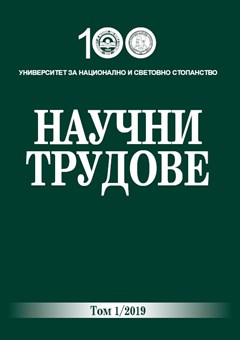Българската държава и „вътрешният друг”
Автор: Мария Бакалова
The Bulgarian State and the „inner other“
Mariq Bakalova
Резюме
В изследването се разглежда в развитие проблематизирането на релевантния „вътрешен друг” в модерната българска държава. Авторовата теза е, че от нейното създаването до наши в отношението и политиката към „вътрешния друг” се сблъскват две тенденции - произтичащата от идеите на Левски линия на „инклузивен републиканизъм” и линията на дефанзивно непризнаване и/или изключване на „вътрешните други”, a динамиката между тях в голяма степен се предопределя от активното въздействие и роля на външни фактори от идеологическо и политическо естество. Ретроспективният обзор и анализ разкрива, че отношението към „вътрешния друг“ е неравномерно, дори зигзагообразно поради въздействието на сложен комплекс от външни влияния и вътрешни схващания и позиции. Двете тенденции не трябва да се възприемат като взаимно изключващи се, защото жизнени и резултатни се оказват политиките, които по някакъв начин съчетават аспекти и от едната, и от другата.
Abstract
The study examines the problem of the relevant “internal other” in the modern Bulgarian state. The author's thesis is that from the creation of the third Bulgarian state to present days the attitude and the politics towards the “internal other” reveals two opposing trends – the “inclusive Republicanism” stemming from Vassil Levski's ideas, and the defensive non recognition and/or exclusion of “internal others”. The dynamics of these trends depends on the active impact and the role of external factors of ideological and political nature. The retrospective review and analysis reveals that the development of attitudes towards "the internal one" is uneven, even crisscrossing because of the complexity of interdependent external influences and inner perceptions and positions. The two tendencies should not be considered mutually exclusive, because vital and effective appear to be policies that combine aspects of both tendencies.
JEL: N440, К100, H110

